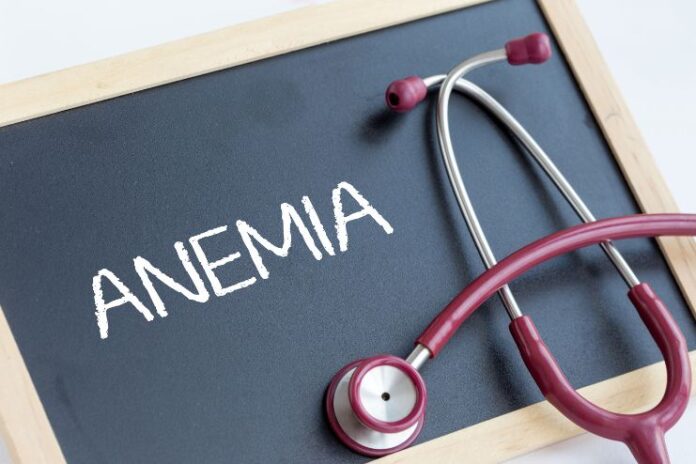Affiliate Disclaimer
Some links in this article are affiliate links. We may earn a small commission if you make a purchase through these links, at no extra cost to you. We only recommend products we find useful to our readersA lower-than-normal quantity of red blood cells or hemoglobin levels in children is a common symptom of pediatric anemia. Iron deficiency anemia is the most common of its many causes, especially in young children, adolescents, and young adults growing quickly. High iron requirements, poor food intake, or insufficient iron absorption may cause this condition.
Treating iron deficiency is crucial for children’s general health and well-being. Iron is essential for sustaining energy levels, promoting brain growth, and moving oxygen throughout the body. If left untreated, anemia can affect a child’s quality of life and academic performance by causing exhaustion, cognitive delays, and reduced immunity.
Preventing and treating pediatric anemia requires early detection and suitable intervention through a balanced diet, supplements, and routine checkups with the doctor. Parents and other caregivers can ensure their children grow strong and healthy by encouraging iron-rich diets and being aware of the risk factors.
Read More: 9 Essential Supplements for Joint Health and Arthritis Relief
Understanding Pediatric Anemia
Anemia is a common problem in children. It occurs when the body has fewer red blood cells than usual. Hemoglobin is a type of protein that allows your red blood cells to carry oxygen to other cells in the body—anemia results when the body doesn’t produce enough of these cells or hemoglobin. Approximately 20% of children in the United States will be diagnosed with anemia at some point.
Causes of Pediatric Anemia
The causes of anemia can vary depending on the type of anemia your child has. Among the most frequent reasons are:
- Shortages in certain nutrients (iron, folic acid, or vitamin B12)
- Inherited anemias, such as sickle cell anemia, thalassemia, and Fanconi anemia, occur due to genetic factors.
- Autoimmune conditions
- Bleeding
- Some types of cancer
- Some drugs
Symptoms of Pediatric Anemia
The symptoms of anemia can vary from child to child. While most of the symptoms are non-specific, some are unique to particular causes of anemia. Additionally, anemia may be a sign of another illness. The most commonly observed signs of anemia include:
- Pale lips, hands, skin, or beneath the eyelids
- Heart rate increase (tachycardia)
- Breathlessness, dyspnea, or trouble breathing
- Being exhausted or lacking energy (fatigue)
- Dizziness or vertigo, primarily upon standing
- Sore or swollen tongue (glossitis)
- Jaundice, or yellowing of skin, eyes, and mouth
Iron-Rich Foods for Children
Parents can incorporate the following foods into their child’s diet to help them maintain appropriate iron levels:
- Fish, poultry, and lean meats
- Tofu, spinach, lentils, and fortified grains
- Tomatoes and citrus fruits improve the absorption of iron
Parents and other caregivers can actively avoid pediatric anemia by being aware of its causes and symptoms and stressing the value of iron in a child’s diet.
Challenges in Iron Supplementation for Children
Iron supplements are frequently advised to treat and prevent iron deficiency anemia in children. However, parents and other caregivers may struggle to ensure that kids take their recommended supplements.
Despite their efficacy, a number of obstacles prevent iron supplements from being used consistently, which results in low compliance and subpar treatment results.
- Some parents find it challenging to provide iron supplements due to the bad taste and the ensuing “battles” with their children.
- Common adverse effects of iron supplements include diarrhea, constipation, nausea, and vomiting.
- Parents may become concerned if their child’s stool turns greenish or grayish-black due to iron supplementation.
Read More: The Best Supplements to Take While Fasting (And What to Avoid)
Child-Friendly Iron Supplements
1. Chewable Iron Gummies (Phytoral Store Kids Iron Gummies)
Many children don’t get enough iron in their diet, which is why a children’s gummy multivitamin with added iron, zinc, and B Complex can be a great solution. These gummies are rich in antioxidants and provide essential nutrients that support healthy growth and development. Packed with vitamins like vitamin C, they help boost the immune system and promote overall well-being.
If you’re looking for an effective and tasty way to ensure your child gets the iron they need, try a kids’ multivitamin gummy with iron and B Complex. Not only do these gummies support immune function, but they also help improve focus and energy levels—making them a convenient, kid-friendly option for parents seeking to boost their child’s health.
2. Liquid Iron Drops (NovaFerrum Pediatric Drops)
Clinical research shows that NovaFerrum is a safe, well-tolerated, and effective supplement for boosting iron levels. It is free from gluten, sugar, alcohol, parabens, artificial coloring, and caffeine, making it a great choice for those looking for a clean, natural option.
NovaFerrum comes in a pleasant, natural fruit flavor that children will enjoy—without the typical unpleasant taste of iron. Each dose delivers 15 mg of iron per mL/dropper, and with 120 servings per bottle, one bottle provides enough for approximately four months. You can mix it with juice or baby formula, or administer it directly to your child for a simple and convenient way to support their iron intake.
Read More: Can Melatonin Supplements Harm Your Sleep Cycle Long-Term
3. Iron-Enriched Pediatric Multivitamins (Flintstones Vitamins Chewable Kids Multivitamin)
Flintstones Extra Iron chewable multivitamin is an easy-to-chew tablet that provides nutritional assistance for children ages two and up. This multivitamin contains 18 mg of iron for children aged 4+ and 9 mg for children aged 2-3. Iron is a necessary mineral for children’s growth and development.
These children’s vitamins are easy to incorporate into their daily routine because they come in various tasty fruit flavors that kids will appreciate. They are organically flavored with multiple natural flavors and come in four delicious varieties: orange, cherry, grape, and peach/pineapple.
For more than 50 years, Flintstones Vitamins has been the top brand of children’s vitamins recommended by pediatricians.
4. Iron-Fortified Foods (Gerber Lil’ Crunchies)
With six 1.48-oz containers, Gerber Lil Crunchies Mild Cheddar Baked Corn Snacks are a tasty and wholesome snack for your child. Babies learning to feed themselves will love these melt-in-your-mouth treats because the manufacturers specifically made them for easy consumption.
They offer a delicious experience that children like, with a subtle cheddar flavor. They are made with non-GMO ingredients, have no artificial flavors or colors, and provide 5 grams of whole grains in each serving. For independent eaters, their light, airy texture makes them easy to chew and swallow, and their perfect size and shape promote self-feeding.
Each serving also contains 1.7 mg of iron—15% of the daily value for infants through 12 months and 25% for children aged 1–3 years—supporting healthy growth and development.
Read More: The 7 Most Effective Supplements for Boosting Workout Performance
5. Powdered Iron Supplements (You+Yours Tasteless Iron Powder)
Your child deserves better than chewable tablets filled with sugar, sweeteners, or unpleasant-tasting liquid iron. This tasteless iron powder is free from sweeteners, colors, flavors, preservatives, flow agents, and fillers, offering a clean, simple option for boosting iron intake.
It’s easy to mix the powder into your child’s favorite beverage or soft meal without altering its flavor, texture, or smell. No more pills to swallow, sticky droppers, or gritty tablets that break apart.
This iron supplement is vegan, non-GMO, and free from gluten, wheat, soy, dairy, peanuts, tree nuts, fish, and shellfish. Made from ferric glycinate, it’s a gentle form of iron that is ideal for sensitive stomachs, making it a great choice for children with dietary sensitivities.
Tips for Parents
Selecting the appropriate iron supplement for your child is crucial to managing their anemia effectively. Depending on your child’s age and preferences, your pediatrician can advise you on the best form, whether liquid, chewable, or tablet. To improve iron absorption, choose supplements that have vitamin C.
When giving supplements, pay close attention to the recommended dosage. Unless otherwise instructed, take the supplement with food or juice to reduce adverse effects like nausea or constipation. Promote water and a high-fiber diet to ease intestinal discomfort.
Get regular pediatric checkups to track your child’s development. Blood tests can measure iron levels to ensure the supplement works. Keeping lines of communication open with your physician will help you resolve any issues quickly.
Read More: All About Calcium: Supplements, Dosage, and Absorption
Conclusion
Using kid-friendly iron supplements to treat pediatric anemia is crucial for promoting normal growth and development. Iron is essential for energy synthesis, oxygen transport, and cognitive function. Parents can successfully treat and prevent anemia in their children by selecting the appropriate supplement and ensuring they take it consistently.
Speaking with medical professionals is essential for individualized advice based on your child’s age, nutritional requirements, and current health—frequent examinations aid in tracking development and modifying treatment as needed.
Encouraging a well-rounded diet high in iron and providing supplements when necessary guarantees that kids get enough nourishment for general health. Parents may help their children flourish and create a future full of strength, vitality, and energy by providing proactive care and making educated decisions.
References
- https://www.cedars-sinai.org/health-library/diseases-and-conditions—pediatrics/a/anemia-in-children.html
- https://www.childrenshospital.org/conditions/anemia
- https://www.childrens.com/specialties-services/conditions/anemia
- https://www.aafp.org/pubs/afp/issues/2010/0615/p1462.html
- https://www.healthline.com/health/parenting/iron-rich-foods-for-toddlers
- https://www.cdc.gov/infant-toddler-nutrition/vitamins-minerals/iron.html
- https://www.texaschildrens.org/content/conditions/iron-rich-foods
In this Article



















